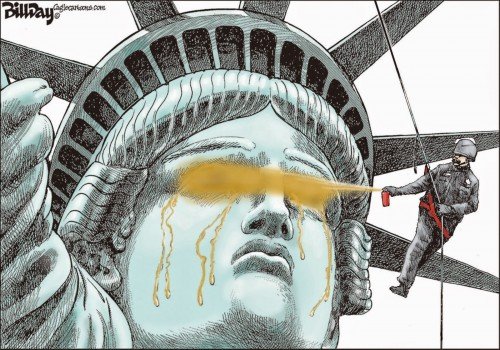@freewill On Free Will and Accountability – a demand for more Compassion from @kevinwong !
In @Kevinwong ’s excellent recent post (link at the bottom for those who missed it), he argued that “You have free will, no matter what others may tell you.” He then goes on to argue – and I’ve simplified the position somewhat - free will is incomplete because sometimes your culture or situation “makes” you do things.
I think this position is indefensible.
I can’t understand how Kevin can argue for limited free will, but fail to follow his argument to its logical conclusion… That there is no free will at all.
The compassion that makes Kevin able to see that culture and situations can impact on decision make to absolve culpability must, in my view, be extended further.
What is there other than your genetics/biology, your past experiences, your current situation, and possibly some randomness, which could possibly determine the result of any decision you make? If we agree that these 4 things are what will determine any decision, then the simple act of making the decision does not, in my view mean that free will exists. Rather, it simply implies that a decision making process which is based on those 4 elements takes place. Because the outcome of any decision is entirely based on these factors, the result of the decision (any action) cannot be anyone’s “fault”.
Kevin’s argument for free will is what exactly? That there is some “extra” thing which enables you to make choices you ought to be culpable for? If so, what exactly is this thing adding which makes someone culpable for their decisions?
Let’s take, as a way to illustrate my position, the case of a person who develops a frontal lobe tumour. This is the part of the brain responsible for inhibition, spontaneity, judgement and social/sexual behaviour. Prior to the tumour he has never done anything which would be considered immoral. However, weeks after developing the tumour, he begins to act inappropriately around children, in a way which most people in his culture agree is “criminal”.
Now, this gentleman is still making decisions, but these are not ones which he would have made had he not had the tumour. Indeed, he wouldn’t be making these decisions if he wasn’t around children either. It seems clear to me that both biology and situation are responsible for the way he is acting. Is he responsible for his actions? Should he be punished for them?
If he acts criminally towards someone, but a week later gets the tumour removed and returns to his “old self”, should he still be punished? The answer seems obvious to me.
Kevin states that “All man made laws assume that every moral agents are completely accountable over their thoughts and actions.” And that “There will be an erosion in criminalization once free will is properly understood.”
I couldn’t agree more with this statement, but in my opinion because there is no free will, criminalisation in the traditional sense will not just be eroded but will need to be understood in a wholly new way.
We can say that someone’s biology, past, current situation (and perhaps some universal randomness) has led them to be the kind of person that we do not want around us. But surely we must not punish them for their actions. We must instead attempt to create for them in a new situation in which they will not act in a way which we have deemed unacceptable.
Kevin’s position seems to be a little lacking in compassion to me…
Here’ a link to the post I’ve been discussing: https://steemit.com/philosophy/@kevinwong/the-end-of-criminalization-on-free-will-accountability-and-compassion

I tend to write in a middle kind of way without going too far left or too far right. Personally don't think there's a difference in objective/subjective reality (talked bout it in my previous post about consciousness). For some, illusion of free-will is good enough an answer. If you think about the universe as a giant state machine, and believe in the theory of parallel universe - that's pretty easy to reconcile both deterministic / non-deterministic worldviews. There's really no way to tell if my claims are right or wrong. So I just tell it based on my own experience and thoughts bout the subject, and make a case for decriminalization as the next iteration (instead of immediate abandonment of the state) in social contract. @_@ thanks for engaging me in this :) I have to say i'm actually pretty tired, maybe i'll read again in the morning!
Thanks for the reply Kevin.
I think your approach is reasonable, but as I say in the OP I just can't see why you wouldn't follow your own argument to it's logical conclusion (that there is no free will)?
I'd love it if you read again after a sleep and came back to discuss this more! All the best, @freewill
I'm still trying to wrap my head around your post. Are you on steemit.chat?
I'm afraid not... happy to discuss here though : )
This is an interesting argument. It is difficult to counter it, but I find it hard to reject the idea of Free Will when it feels so obvious to me that I have it.
My arguement does not take away decisions from actors, but merely states that the decisions are based on the 4 things I mention in the post... I don't know if that helps?